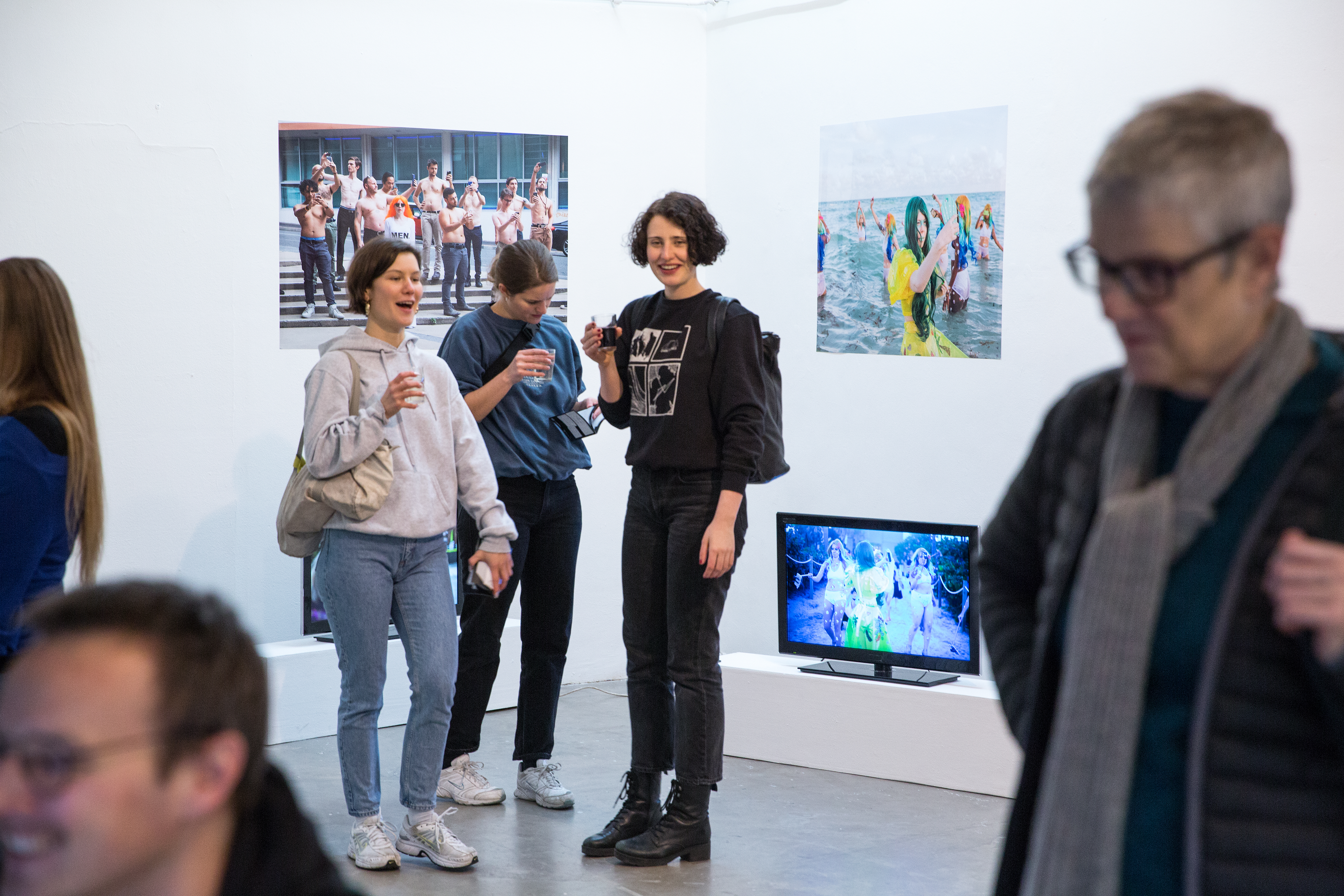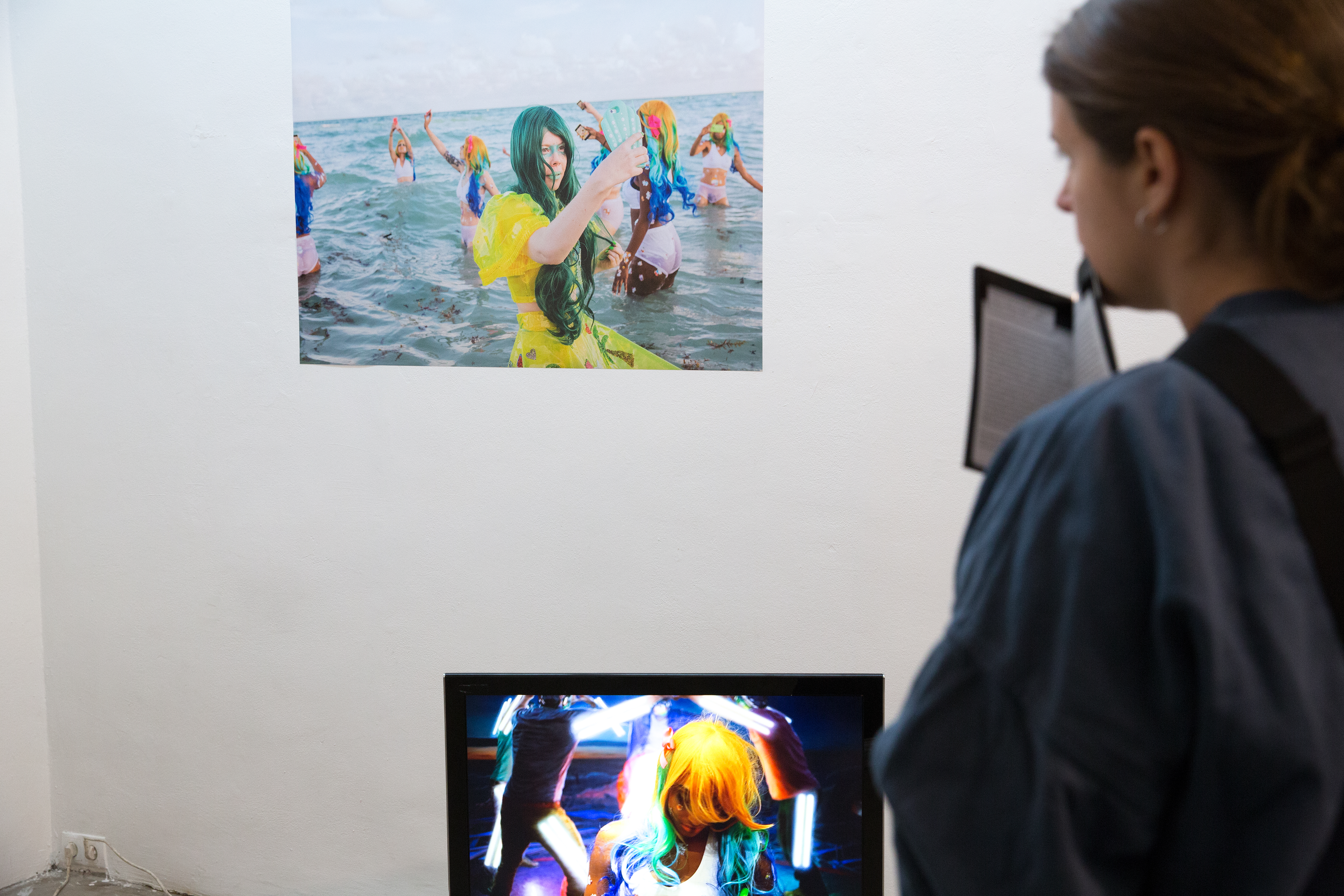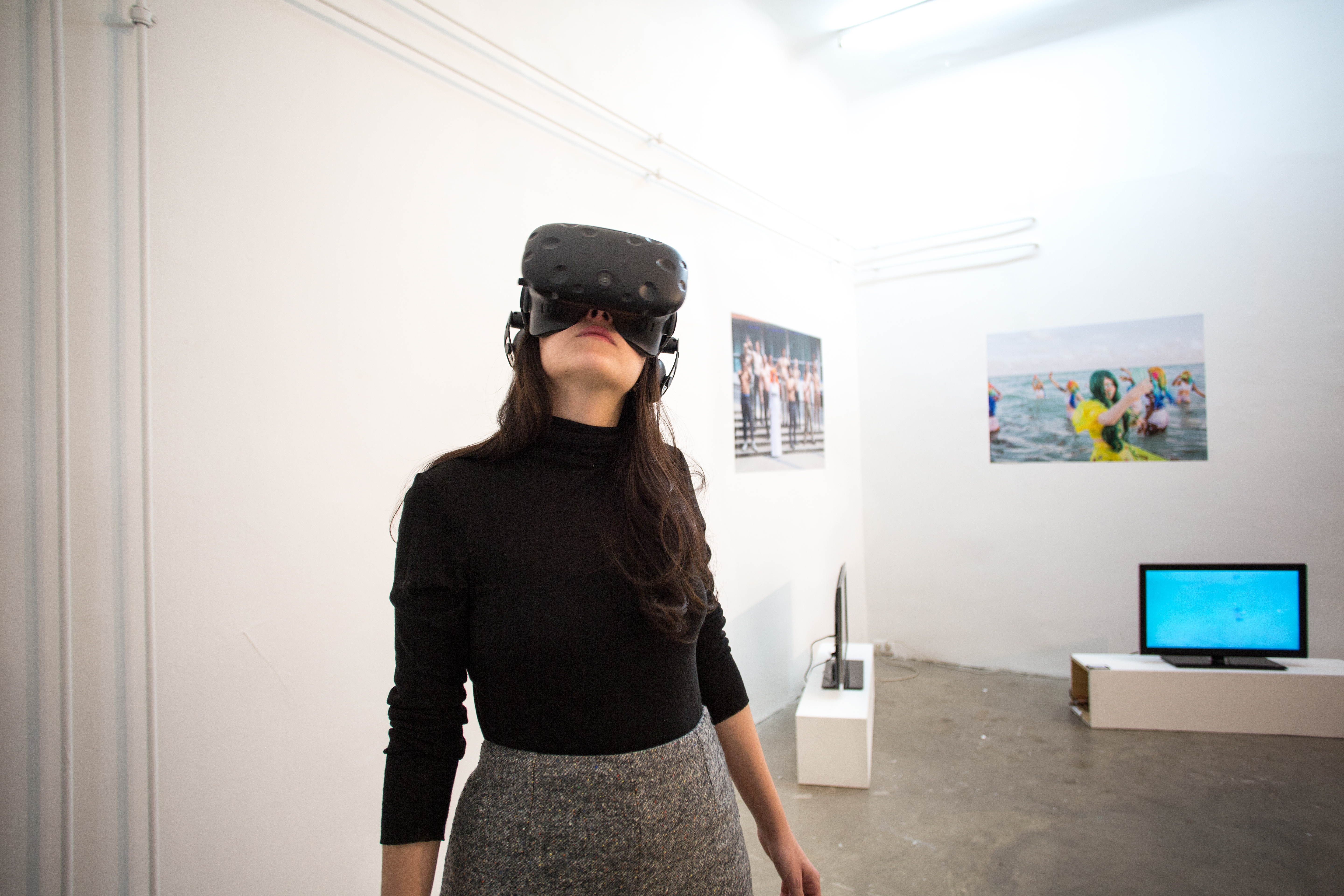
 The exhibition "Search for... Feminism. The more you search, the less you find”, which was launched in Vienna in January 2020, critically investigated the online world from a feminist point of view, tackling data bias, gender-insensitive algorithms, and how women are influenced and treated differently online. It featured the work of six international artists and the presentation of different activist groups, which either involve technologies that promote social change and gender equality or critically investigate these same digital tools. The Feminist Principles of the Internet, a series of statements that offer a gender and sexual rights lens on critical internet-related rights, were part of this exhibition, and APCNews had a conversation with its curators, Aline Lara Rezende and Julia Hartmann, to gain more insight on the event and to understand the part that the Feminist Principles of the Internet played in this unique display.
The exhibition "Search for... Feminism. The more you search, the less you find”, which was launched in Vienna in January 2020, critically investigated the online world from a feminist point of view, tackling data bias, gender-insensitive algorithms, and how women are influenced and treated differently online. It featured the work of six international artists and the presentation of different activist groups, which either involve technologies that promote social change and gender equality or critically investigate these same digital tools. The Feminist Principles of the Internet, a series of statements that offer a gender and sexual rights lens on critical internet-related rights, were part of this exhibition, and APCNews had a conversation with its curators, Aline Lara Rezende and Julia Hartmann, to gain more insight on the event and to understand the part that the Feminist Principles of the Internet played in this unique display.
APCNews: What inspired the name of the exhibition: "Search for... Feminism. The more you search, the less you find”?
The exhibition series started in 2016 with the title “Search for… Serendipity. The more you search, the less you find”, and the title should remind [people] of Google's search bar. The exhibition dealing with Serendipity and the following iteration concerning Feminism claim that the more you search for a topic on the internet, the less new and unexpected information one receives. Coincidence and chance, for instance, get lost through the increasing algorithmisation, and moreover, our online behaviour is subliminally influenced. In the “Search for… Feminism” exhibition in Vienna, we examined the online world from a feminist point of view, arguing that women are treated and influenced differently online.
APCNews: How did you run into the Feminist Principles of the Internet and why did you consider them a good resource for the exhibition?
During the research and organisation processes for the “Search for… Feminism” exhibition, we encountered more disadvantages and problems for women online, like the trolling by incels, the spread of stereotypes and sexist and racist biases, or the sheer rage against outspoken women, to name but a few. Nevertheless, we also wanted to present artists, activists and initiatives who were not only displaying these issues but, moreover, to highlight their ways and activism to change the situation for women. Through research we luckily stumbled upon the Feminist Principles of the Internet and were really happy to be able to include their strategies for a feminist internet. After all the dire prospects, it was a relief for the visitors to see that a sort of feminist movement – beyond hashtags – is possible and happening, too.
APCNews: How can we better navigate an online world that encourages us to speak up about “what’s on our mind” , but, at the same time, when we do, it silences us, discriminates against us, and backlashes with a reinforcement of the patriarchal status quo?
This is a difficult but necessary question and one that we can try to answer individually, but in my opinion, laws and regulations need to be implemented in order to protect women online. That said, it shouldn’t stop us from speaking out about “what’s on our minds"! I know it’s not easy to grow a thick skin, but we should keep in mind that the critique or harassment we might encounter is not personal. It is usually written by someone who hides behind their screens in the safety of their homes, who don’t know you and have various ulterior motives for their actions.
APCNews: In your view, how can we create a feminist internet, if we would need to do it from within the same internet we are trying to change? What do you think are the necessary steps for this to happen?
I think the feminist internet’s strategies are already providing a good start and I hope that they will be disseminated and implemented widely. Also, visualisation and discussion of the problems women are facing online should happen more frequently, and this was also a reason why we thought the exhibition at the VBKÖ was necessary. In my view, raising awareness and talking about one’s own experiences is necessary, and that became obvious during the exhibition. Many visitors didn’t know about the subliminal influence of algorithms on our online behaviour and/or were sharing their own stories of online harassment. Obviously, the internet is also a powerful tool for empowerment and emancipation, which are driving forces for any social movement, and I hope to see many more developments in this direction.
Photos by Claudia Sandoval Romero.